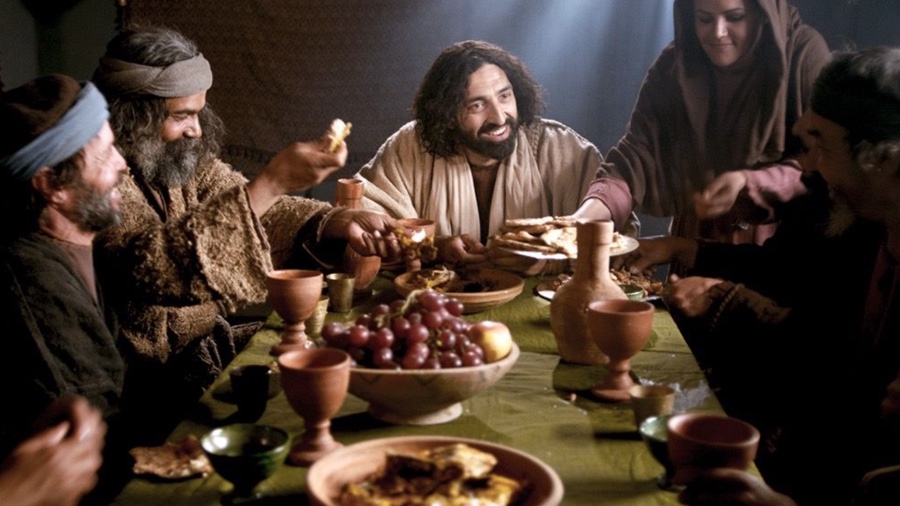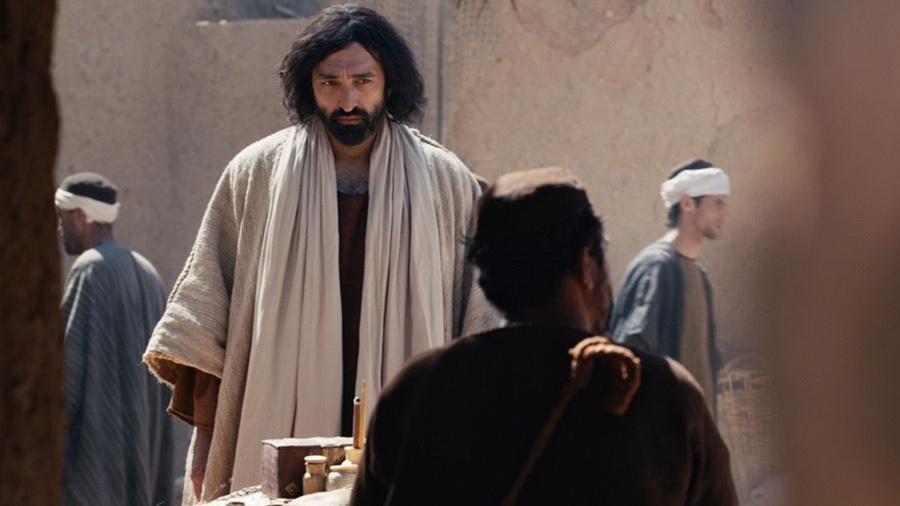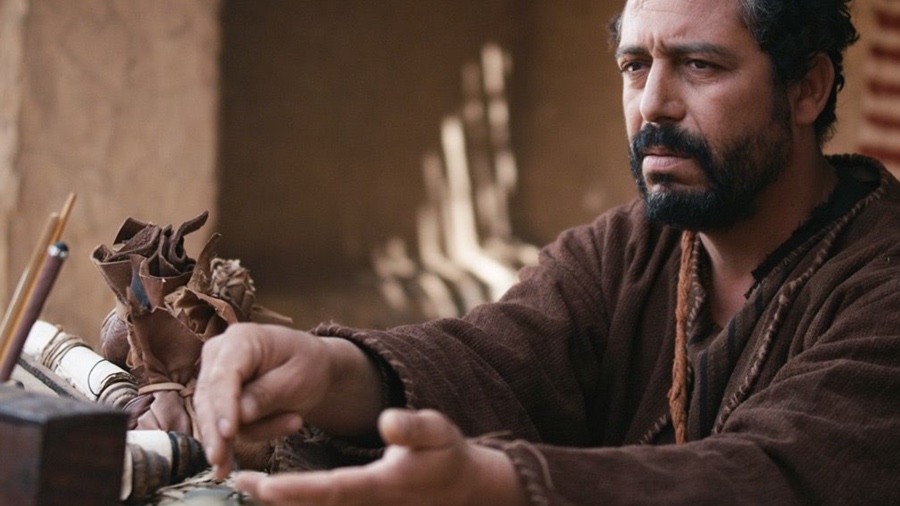You probably have your opinion. I could give you several reasons why I think it is so. However, sometimes asking the question - and being haunted, troubled, convicted, and challenged by it - is enough. So, rather than giving my two-cents-worth of opinion, I want to let the question hang in the air and remember an event from the ministry of Jesus:
Once again Jesus went out beside the lake. A large crowd came to him, and he began to teach them. As he walked along, he saw Levi son of Alphaeus sitting at the tax collector's booth. "Follow me," Jesus told him, and Levi got up and followed him.While Jesus was having dinner at Levi's house, many tax collectors and sinners were eating with him and his disciples, for there were many who followed him. When the teachers of the law who were Pharisees saw him eating with the sinners and tax collectors, they asked his disciples: "Why does he eat with tax collectors and sinners?"
On hearing this, Jesus said to them, "It is not the healthy who need a doctor, but the sick. I have not come to call the righteous, but sinners"

Individually, none of us is Jesus. Together, however, we are called to be his bodily presence in the world. Paul called us the body of Christ (1 Corinthians 12:27; Ephesians 4:12). Our goal, as Jesus' people, is to grow and mature in every way to become his ministering presence in our world (Ephesians 4:13-16). We celebrate that we are Jesus' body in Communion as we share in the one bread and are made into one body (1 Corinthians 11:16-17). Jesus is the head of this body (Ephesians 3:15; Colossians 2:19).
Shouldn't the life of Jesus, his character as well as his compassion, be present in us? If we are his bodily presence, shouldn't we have a similar impact on the last, the lost, the least, and the left out as Jesus did? But, for the most part, we don't, do we?
Is it because we don't like to have parties with the kind of people Jesus had parties?
Is it because we are more like the Pharisees in this story and are more concerned with how our association with "outsiders" will look to insiders?
Is it because we have forgotten what our mission is as Jesus' bodily presence in the world, to reach those in need of healing and forgiveness?
Mark helps us clearly hear the call of Jesus. In the central section of his gospel (Mark chapters 8 through 10), Jesus reminds us three times that he will go to the cross (Mark 8:31-33; Mark 9:30-32; Mark 10:32-34). He then calls his disciples, and us, to follow him on this journey to the cross because it is central to his mission. Jesus clarifies this mission when he says:
For even the Son of Man did not come to be served, but to serve, and to give his life as a ransom for many (Mark 10:45).
I have often wondered what early disciples would think of these practices - or really a lack of practices in calling people to a commitment. After all, this individualistic process of conversion never occurs in the New Testament. Never. Not once. At least not in the way it is presented today. So should anyone be surprised when these newly "saved" folks don't attend church, share the moral values of Scripture, surrender their own way of doing things for the Jesus way of doing things, don't see the need for personal sacrifice, or the call of Jesus to follow his lifestyle of loving generosity, self-sacrifice, purity, and compassion?

There is never the hard ask to get up and follow like Levi received from Jesus. Our way of doing things is more like, "Just sit there, Levi, and say a little prayer that shows you believe Jesus is Savior and keep doing what you're doing." It's as if we are afraid to make following Jesus too demanding, so we set the bar lower so following is easier. Then, we lose the call to self-sacrifice and to the essentiality of sacrificial love and to the lifestyle that gives up its rights to reach the last, the lost, the least, and the left out. We forget that without Jesus, that's who we once were before he called us to leave our stuff as the goal of our lives and become like him. Most of all, we forget that we don't hide our new association and commitment to Jesus from our old friends, but throw a party and celebrate it.
You see what happens when we start asking these kinds of questions? They're unsettling. They're uncomfortable. They're troubling. So, we don't ask them - at least not out loud. We just keep doing what we are doing because we are used to our way, and we don't like questions that are troubling or unsettling or discomforting. But, Jesus asked a bunch of troubling, unsettling, and uncomfortable questions. Maybe we should let these questions trouble us. Maybe we should keep asking them. Maybe we should be haunted by them. Maybe we should... until we find ourselves more like Jesus and find more of the people who surrounded Jesus around us.
"Follow me," Jesus told him, and Levi got up and followed him.

Special thanks for these images for use in Phil's blog, "The Jesus Window," to Free Bible Images and the The Lumo Project.












Comments
Have thoughts on this article? Leave a comment